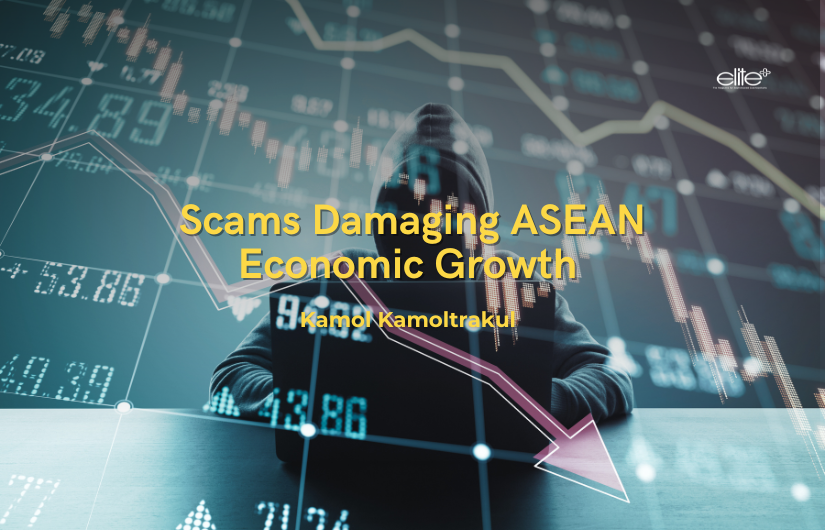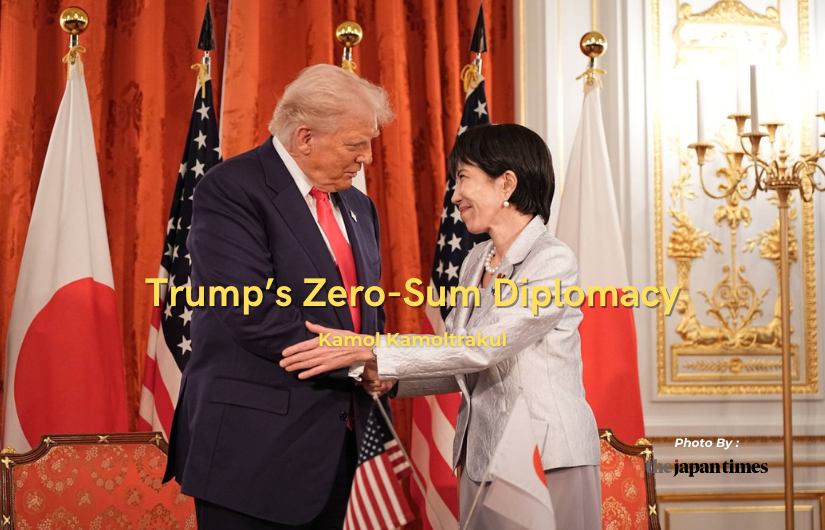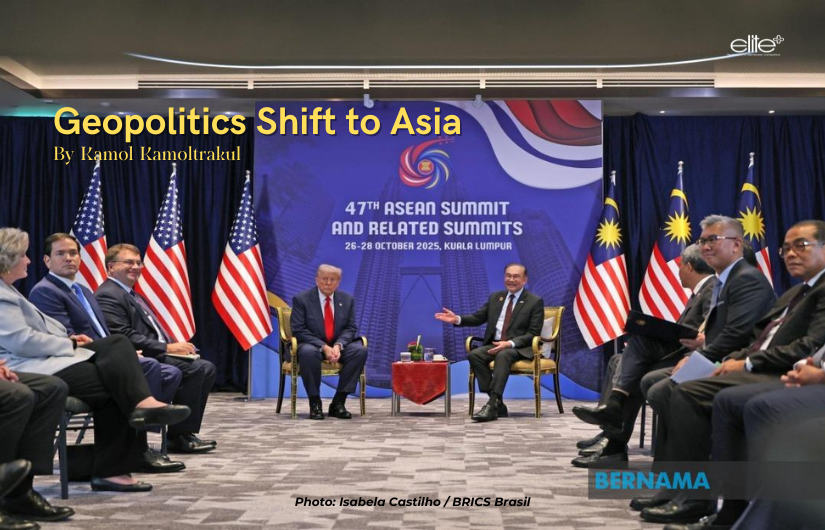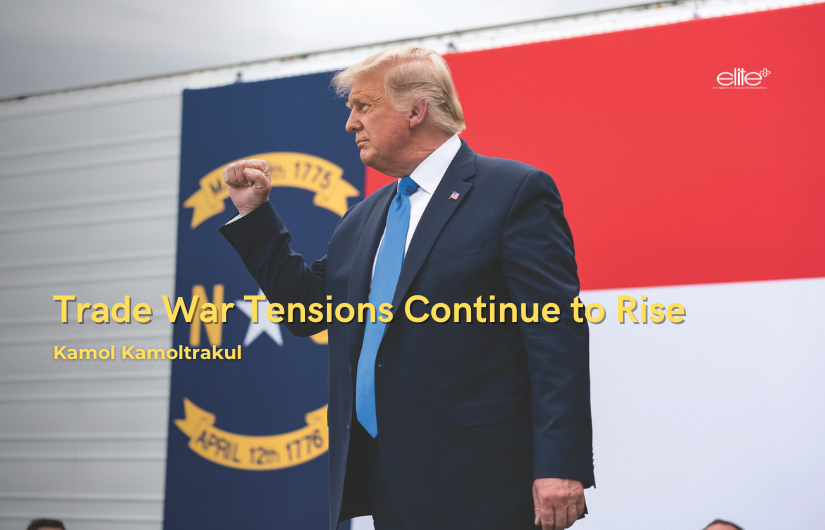Will ASEAN Devise a Strategy to Deal with Tariffs as a Block
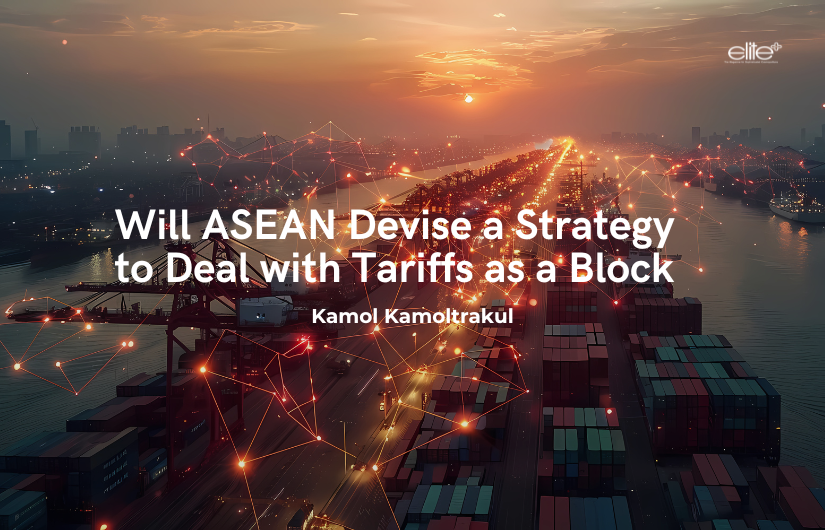
ASEAN has learned a lesson; it’s more effective to deal as a block. Trump’s reciprocal tariff deadline of August first for many countries is now quickly approaching, which is causing an uproar around the world. ASEAN is looking to minimise the impact by moving close together to expand trade partners beyond the US market. Though some countries, Vietnam and Indonesia, succeeded in making direct deals with the US, critics still have doubts of the consequences in the long term. The joint meeting between ASEAN’s foreign and economic ministers in Kuala Lumpur on July 11 was seen as an initiative to forge a response to a more uncertain economic and political global phenomenon.
ASEAN is currently made up of 10 member states, with Timor-Leste expected to officially become its 11th member state at the upcoming leaders’ summit in October 2025. With a population of around 700 million people, ASEAN is the fifth-largest economy in the world with a combined gross domestic product of USD 3.9 trillion, making it big enough that it cannot be ignored.
Although US President Donald Trump’s tariff threats spread ripples of economic uncertainty in ASEAN, they have triggered ASEAN to look towards other trade alliances.
The US tariff announcements are impacting economies all over the world, including ASEAN. Malaysia, this year's ASEAN chair, faces a 25% tariff, beginning Aug 1 while Laos and Myanmar face a 40% tariff, Cambodia and Thailand 36%, Indonesia 19%, Vietnam 20% (with 40% on trans-shipments) and the Philippines and Brunei 20% and 25% respectively.
“Suddenly, every country is looking to diversify their markets and seek more reliable trading partners,” Yusuf Rendy Manilet, an economist from the think tank Center of Reform on Economics (CORE), told CNA, adding that “Trump’s tariff decisions have so far been subjective and arbitrary. Trump’s policies have been unpredictable and without solid grounds. He is even hitting his allies with lofty tariffs.”
However, as countries around the world rush to find new markets, some nations might be tempted to roll back long-standing tariff policies on US goods to zero as well as lift the trade barriers and water down key environmental and industrial protections in exchange for sealing a deal with Trump quickly.
In addition, some analysts have warned that such rushed negotiations could lead to trade imbalance, job losses and environmental damage as they also cautioned against countries potentially sacrificing their domestic interests.
Experts have said that the Southeast Asian bloc now recognises that economic and political realities are no longer inseparable as the current global environment demands a more sustained policy response. Since 1987, ASEAN's heads of government have recognised the importance of holding joint ministerial meetings to enhance coordination. The meeting between ASEAN’s foreign and economic ministers in Kuala Lumpur on 11 July 2025 was a rare occurrence, with analysts calling its revival a “dramatic shift” in the bloc’s strategy as a response to a “more volatile global landscape”.
Malaysian Foreign Minister Mohamad Hasan said after the gathering with his ASEAN counterparts, “ASEAN will aim at developing a more coordinated regional response to economic headwinds and rising trade tensions.”
The revived meeting has been described as a move towards strategic pragmatism, reflecting ASEAN’s heightened awareness that economic decisions can no longer be divorced from political realities or work in silos. "The joint meeting of ASEAN’s foreign and economic ministers is not just symbolic, it reflects a conscious move towards policy integration in response to a more volatile global landscape," said Khoo Ying Hooi of Universiti Malaya's International and Strategic Studies Department.
Khoo added that external shocks such as escalating trade tariffs, supply chain vulnerabilities and intense strategic competition between major powers are compelling ASEAN to project greater coherence and agility. Despite the clear necessity for integrated action, significant challenges loom over the implementation of decisions from this joint meeting.
Pointing to ASEAN's consensus-based decision-making model, divergent national interests and lack of robust institutional mechanisms for enforcement and monitoring outcomes, Khoo said, “The convergence of economic and political discussions heightened the risk of internal fractures, as member states differ widely in both economic structures and political alignments. The challenge will be to avoid paralysis while pursuing deeper coordination."
In addition, ASEAN’s consensus model, while foundational to its unity, often slows down decisions on contentious or politically sensitive matters while divergent national interests can lead member states to prioritise bilateral gains over regional coordination. Khoo added that ASEAN’s institutional architecture still lacked the necessary enforcement and monitoring mechanisms, compounded by external geopolitical pressures from the US and China, which have created competing incentives that could undermine cohesion.
In fact, some Southeast Asian governments have been proactive in engaging Washington to secure lower tariff rates. Some made last-minute attempts to increase their offers to Washington. Indonesia announced a USD 34 billion pact to increase imports of fuel and raising Indonesian investments in the US while Vietnam announced zero tariffs on US imports.
Trump wrote that US exports to Indonesia are to be tariff and non-tariff barrier free in exchange for lowering Indonesia’s tariff from 32% to 19%. “This landmark deal opens up Indonesia’s entire market to the US for the first time in history,” he continued.
Trump said Indonesia had also committed to purchasing USD 15 billion worth of US energy and USD 4.5 billion in American agricultural products, as well as 50 Boeing jets.
“For the first time ever, our ranchers, farmers and fishermen will have complete and total access to the Indonesian market of over 280 million,” Trump explained.
The deal caused an uproar from the local media because the costs appear to outweigh the benefits in the long run. However, President Prabowo defended the deal, speaking to reporters on Wednesday, calling it “mutually beneficial”. “I have calculated everything. What matters to me are my people. What matters is that I have to protect my workers,” he said, adding that Indonesia is only purchasing what it needs from the US.
Moreover, the president highlighted that Indonesia does not produce its own wheat and soy, something which the US can supply. The Boeing jet purchase, he continued, will be used to grow its national airline, Garuda.
“I have spoken with President Trump. It was tough negotiation, but in the end there was an agreement. We understood their needs and they understood ours,” Prabowo said.
However, there are those who believe this latest trade deal between Indonesia and the United States could set a “bad example” for countries looking to make similar arrangements with the Western superpower.
However, for the moment, countries have little choice but to continue engaging with US trade officials to secure a better deal. Washington’s tough demands and zero-sum trade approach could push countries away in the long term as they diversify their trade links to avoid over-reliance on the US market.
The US may win this battle and others like it, but lose the war by driving countries away, not necessarily into China’s arms. There is also the Eurasian Economic Community - a union of five former Soviet states, including Russia and Kazakhstan - and the South American economic bloc, Mercosur – comprising six countries, including Brazil and Argentina, as well as the EU which is facing up to 30% in reciprocal tariffs.
“The only good thing from Trump’s tariffs is that they are bringing countries closer together as they set aside their differences,” Teuku Rezasyah, an associate professor in International Relations at Padjadjaran University, told CNA.
ASEAN member states have no choice but find a solution that makes them less vulnerable to leverage from Washington.

Kamol Kamoltrakul 48 Posts
Visiting lecturer: Navy Academy Institution, NIDA, School of Governor, Ministry of Interior, Chulalongkorn University, Former Lecturer, ABAC Honorary Advisor Trade and Industry Committee Senate. Senior advisor, Standing Committee on Finance and Banking, The House of Representative. Former Advisor to the Minister of Interior Board Member of ThaiPBS Board Member Of Thai Consumer Council Columnist : Prachachart Business Weekly, Matichon Weekly, Khom Chad Luke Daily Former Program Director Asian Forum for Human Rights and Development ( FORUM-ASIA).




